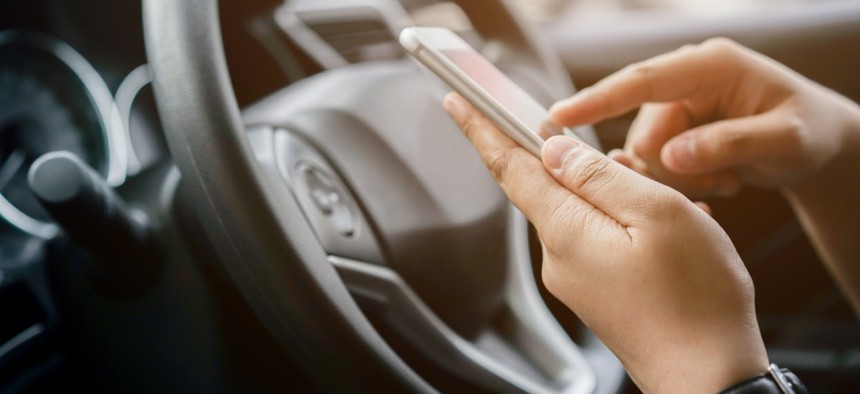Are Plastic Driver's Licenses Headed For the Dumpster?

istock.com/Chainarong Prasertthai
Utah is one of nearly two dozen states exploring digital driver’s licenses, stored on smartphones, that state officials say come with enhanced privacy and control.
Utah will launch a pilot program to deploy digital driver’s licenses, joining a growing number of states exploring the use of identification stored in a smartphone.
The program, administered by the state Department of Public Safety, will begin on June 1 with 100 “select participants,” with plans to expand to 10,000 members, including the “broader public,” later this year, the agency said in a news release.
“Our Driver License Division is committed to working with residents and stakeholders to implement a solution which provides the highest value to Utahns: one which is accepted anywhere, provides enhanced privacy, security and personal control,” Jess L. Anderson, the department’s commissioner, said in a statement.
Nearly two dozen states have rolled out digital driver’s licenses and state ID cards, including Iowa, Wyoming, Colorado, Louisiana and Delaware, which last month launched an app that allows all existing license and ID holders to keep digital copies of their identification on their smartphones.
The details of digital licenses vary from state to state, though virtually all offer enhanced privacy options that allow residents to choose which information they share when showing their identification.
In Utah, for example, mobile license holders can “select the data” they wish to show, then tap or scan their phone, “giving the reader permission to securely connect and read only the information you approved.”
“You only share what you need to be approved for the transaction,” the agency said on a question-and-answer page about the project. “Unlike your physical card, with mobile ID you do not have to hand over the entire card and all your data. The liquor store cashier does not need to know where you live, just that you are above the legal age.”
Though it functions as an official state ID, Utah’s mobile driver’s license is not simply a picture of an existing identification—“it’s too easy to photoshop a fake,” the department said. Instead, it’s an encrypted phone app protected by a personal identification number, face scan, or fingerprint, all of which can be wiped remotely if a user’s phone is lost or stolen.
The government won’t use the app to track a resident’s location or purchase history (“No state government wants to track your usage of ID cards,” the division said on its website), and certain privacy protections are required by national guidelines on the still-emerging technology.
Not every business currently accepts mobile identification, so participants in the pilot program are encouraged to continue to carry their physical cards.
Utah’s program was created by a 2019 bill that directed the state to begin studying the process of implementing a digital system, including identifying potential vendors. The legislation included a one-time allocation of $200,000 to fund those efforts.
Sen. Lincoln Fillmore, a Republican and the measure’s main sponsor, said at the time that the electronic driver’s license would be more convenient for residents who are already comfortable using their phones as digital wallets.
“The only reason you might carry a wallet these days is because you have a driver's license in it,” he said on the Senate floor in February 2019. “This would allow users, at their option, to replace their paper driver’s license for the purposes of operating a vehicle, to an electronic version that could be stored on their smartphone.”
Kate Elizabeth Queram is a senior reporter for Route Fifty and is based in Washington, D.C.
NEXT STORY: 29% of Adults Have Debt in Collections, Report Finds





